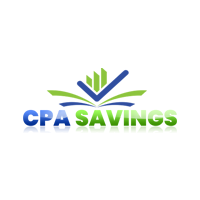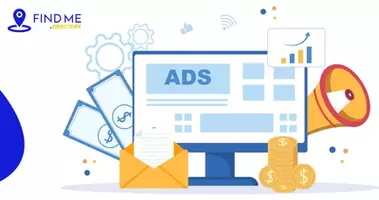
Tax season can be a challenging time for small business owners, but it’s also an opportunity to identify strategies that reduce tax liabilities and maximize profitability. By understanding tax laws, leveraging deductions, and planning throughout the year, small businesses can achieve significant savings. This guide provides actionable advice to help you save on taxes every year.
Understand the Tax Basics for Small Businesses
Before diving into strategies, it's crucial to grasp the fundamental tax obligations for small businesses. Whether you're a sole proprietor, LLC, partnership, or corporation, understanding your tax structure determines how your income is taxed.
- Stay informed about federal, state, and local taxes: These may include income tax, self-employment tax, payroll tax, and sales tax.
- Identify your filing deadlines: Filing on time helps avoid penalties and interest charges.
- Choose the right business entity: Your business structure affects your tax rate. For example, S Corporations allow profits to pass through to the owner’s personal tax return, avoiding double taxation.
Learn more about tax responsibilities for businesses on the IRS website.
Maximize Deductions to Lower Taxable Income
Deductions are one of the most effective tools for reducing taxable income. The IRS allows businesses to subtract certain expenses directly related to running the business, as long as they are “ordinary and necessary.”
Common Business Deductions
Home Office Deduction
If you use a part of your home exclusively for business, you may qualify for this deduction. You can either calculate actual expenses (mortgage, utilities, etc.) or use the simplified method based on square footage.Business Vehicle Expenses
Track mileage and expenses for vehicles used for work purposes. Choose between deducting actual costs or using the IRS standard mileage rate, which is updated annually.Office Supplies and Equipment
Everything from paper and pens to printers and laptops can be deducted if used for your business.Employee Salaries and Contractor Payments
Wages, bonuses, and payments to freelancers are deductible if they meet IRS guidelines.Advertising and Marketing
Expenses for promoting your business, such as social media ads, website hosting, and print advertising, qualify as deductions.Travel and Meals
Business travel expenses, including airfare, lodging, and meals during business trips, are deductible. Note that meals are typically limited to 50% of the cost.Education and Training
Costs associated with improving your business knowledge, such as attending seminars or purchasing educational materials, can be deducted.
Special Deductions to Consider
- Section 179 Deduction: Allows businesses to deduct the full cost of qualifying equipment in the year it’s purchased rather than depreciating over several years.
- Qualified Business Income (QBI) Deduction: Pass-through entities like sole proprietorships and LLCs may deduct up to 20% of qualified business income.
Explore detailed deduction guidelines on the IRS website.
Stay Organized with Recordkeeping
Good recordkeeping is essential for claiming deductions and surviving an audit. Organized records make it easier to track expenses and ensure you don't miss opportunities for savings.
Tips for Effective Recordkeeping
- Use accounting software like QuickBooks or Xero to automate tracking.
- Keep digital or physical receipts for all business expenses.
- Regularly reconcile bank statements with your accounting records.
- Separate personal and business finances with a dedicated business bank account and credit card.
Leverage Tax Credits for Additional Savings
Tax credits directly reduce your tax bill and can result in substantial savings. Unlike deductions, which reduce taxable income, credits reduce the actual amount of taxes owed.
Key Tax Credits for Small Businesses
Work Opportunity Tax Credit (WOTC)
This credit is available to businesses that hire employees from certain target groups, such as veterans or individuals receiving government assistance.Research and Development (R&D) Tax Credit
Small businesses involved in innovation or product development can qualify for this credit.Employer-Provided Childcare Credit
If you provide childcare services for your employees, you may be eligible for a tax credit.Energy-Efficient Property Credit
Investments in renewable energy, such as solar panels or energy-efficient HVAC systems, can result in a credit.
Check eligibility for specific tax credits on the IRS website.
Contribute to Retirement Plans
Retirement savings plans offer a dual benefit: preparing for the future while reducing current tax liabilities. Contributions to retirement plans are often tax-deductible, and many plans offer tax-deferred growth.
Retirement Plan Options
- SEP-IRA: A Simplified Employee Pension plan allows high contribution limits and tax deductions.
- Solo 401(k): Designed for self-employed individuals, this plan lets you contribute as both an employer and employee.
- SIMPLE IRA: Small businesses with fewer than 100 employees can benefit from this straightforward plan.
- Traditional IRAs and Roth IRAs: These individual plans offer additional savings opportunities.
Tax Credit for Retirement Plans
Small businesses starting a new retirement plan may qualify for a tax credit of up to $5,000 per year for the first three years under the SECURE Act.
Plan for Depreciation
Depreciation allows you to spread the cost of certain assets, like buildings or machinery, over their useful life. Properly accounting for depreciation reduces taxable income annually and ensures compliance with IRS rules.
Methods of Depreciation
- Straight-Line Depreciation: Spreads the cost evenly over the asset's life.
- Accelerated Depreciation: Front-loads deductions, allowing for larger savings earlier.
Learn more about depreciation methods on the IRS website.
Use Tax-Advantaged Accounts
Take advantage of tax-advantaged accounts to reduce costs for healthcare and other expenses.
- Health Savings Accounts (HSAs): Contributions are tax-deductible, grow tax-free, and withdrawals for qualified medical expenses are tax-free.
- Flexible Spending Accounts (FSAs): Use pre-tax dollars to cover healthcare or dependent care expenses.
Hire a Tax Professional
Navigating tax laws can be complex, especially as your business grows. A tax professional can identify overlooked deductions, ensure compliance, and help develop strategies tailored to your business.
Choosing the Right Professional
- Look for a Certified Public Accountant (CPA) or Enrolled Agent (EA) with experience in small business taxes.
- Ensure they stay updated on tax law changes.
- Consider professionals who offer year-round planning, not just tax preparation.
Review Your Tax Strategy Annually
Tax laws change frequently, and what works this year might not next year. Make it a habit to review your tax strategy annually, especially after major changes to your business or the tax code.
Questions to Ask During Your Review
- Are there new deductions or credits you can claim?
- Does your business structure still provide the best tax advantages?
- Are you maximizing contributions to retirement and savings plans?
- Are you planning for future growth and asset purchases?
Bonus Tips for Long-Term Tax Savings
- Invest in Professional Development: Education expenses can lead to better business decisions and additional deductions.
- Utilize IRS Resources: The IRS provides free tools and guides to help small businesses navigate taxes.
- Stay Ahead of Deadlines: File taxes early to avoid last-minute mistakes and penalties.
- Consider State and Local Incentives: Some states offer tax credits and incentives for small businesses.
Final Thoughts
Saving on taxes isn’t just about finding the right deductions; it’s about planning strategically and staying proactive year-round. By implementing these strategies, you can keep more of your hard-earned money and invest it back into growing your business. Whether you’re managing taxes independently or working with a professional, staying informed and organized will set you up for long-term success.








Join the discussion
0 Comment(s)